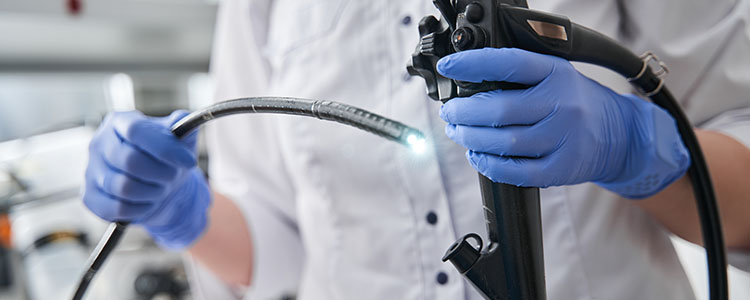
Endoscopy
Endoscopy is a critical diagnostic tool in medicine. It offers a close-up view inside the body that was once only accessible through surgery. This minimally invasive procedure allows doctors to diagnose and treat conditions within the digestive tract, respiratory system, and more, improving patient outcomes with less discomfort and recovery time.
What is an endoscopy?
An endoscopy involves using an endoscope, a flexible, thin tube equipped with a light and camera, to examine the interior surfaces of an organ or tissue visually. The device can be inserted through natural openings of the body, such as the mouth or anus, depending on the area being examined.
Endoscopies can be used to investigate symptoms, conduct biopsies, and even treat certain conditions directly through the scope.
What does it help with?
Endoscopy is instrumental in diagnosing various conditions, including gastrointestinal diseases like ulcers, GERD, certain cancers, and issues in the respiratory system, urinary tract, and more.
It also helps with the early detection of conditions, monitoring or present issues, and guidance for treatment plans, contributing significantly to effective patient care.
How should I prepare for the procedure, and what does it entail?
Preparation for an endoscopy may depend on the type but usually includes fasting for several hours before the procedure to ensure a clear view. You may also need to adjust medications and follow specific instructions about the area being examined.
A sedative is normally dispensed for comfort during the procedure, and the endoscope is gently inserted to explore the targeted area. Depending on its nature and purpose, the procedure generally lasts from 15 to 60 minutes.
What does the aftercare involve?
After an endoscopy, patients are monitored as the sedative wears off, which can take 1 to 2 hours. It's normal to experience mild discomfort or bloating straight after the procedure. Because of the sedative effects, you are advised not to drive for the rest of the day, and you should plan for someone to accompany you home.
Specific aftercare instructions will be provided based on the type of endoscopy performed and any findings or treatments, including when to continue eating and drinking.
Endoscopy is a valuable procedure that can provide critical insights into your health, aiding in diagnosing and managing various conditions. If you're experiencing symptoms that may require an endoscopic examination, don't hesitate to consult with us. This step can be crucial in detecting health issues early on and designing a targeted treatment plan to address them.
Send Us a Message
Fill in the form below and we will get back to you as soonas we can.
